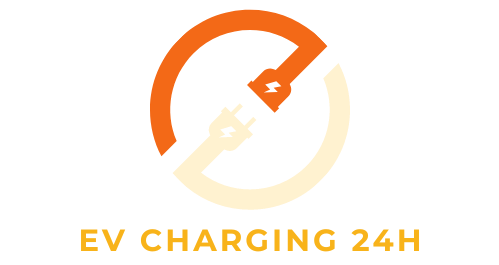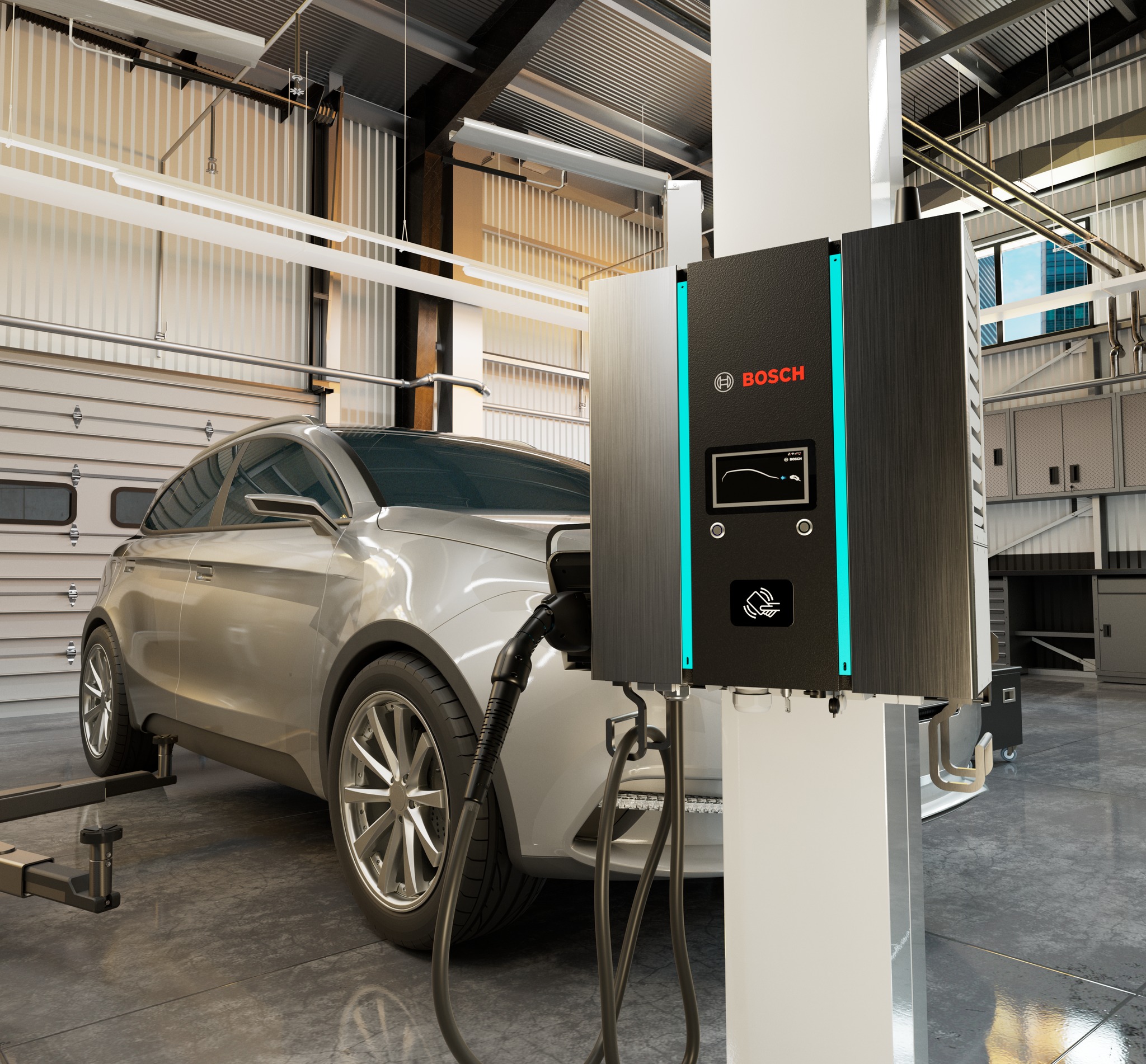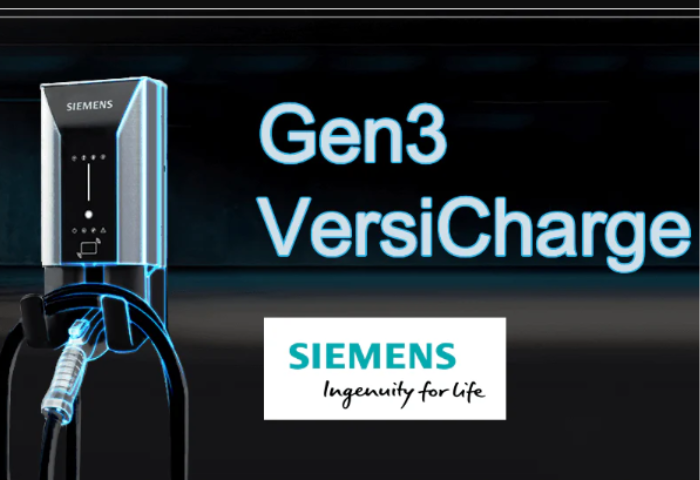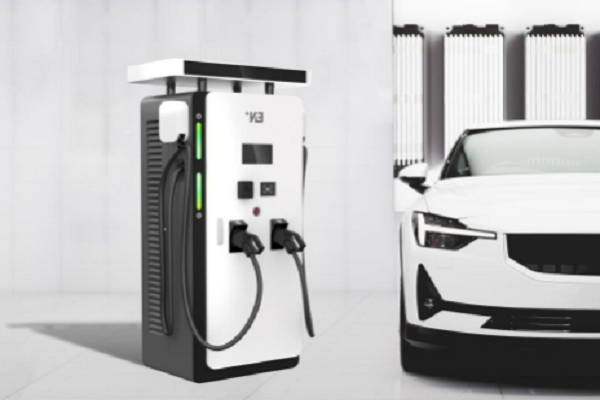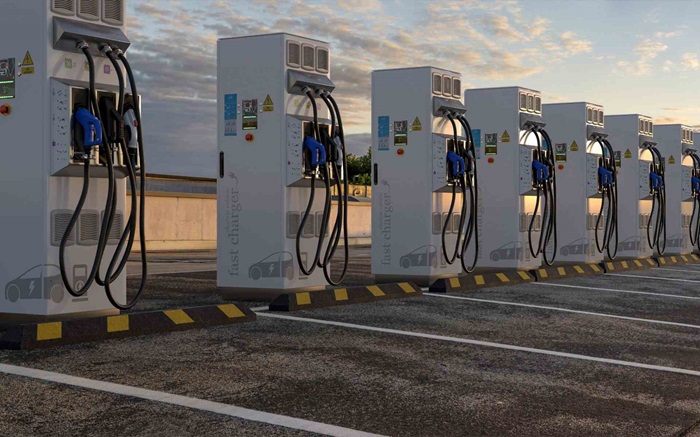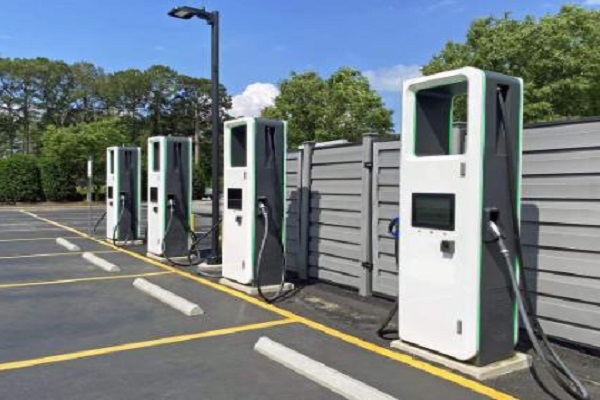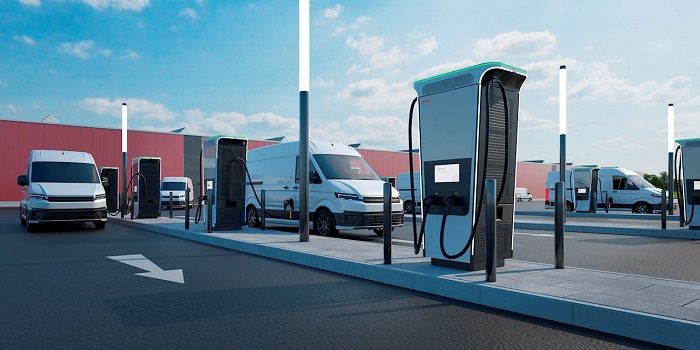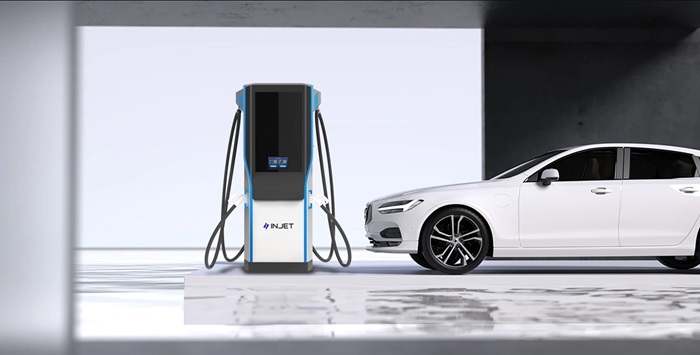Everything You Need to Know About Bosch Level 3 EV Charger
The Bosch Level 3 EV charger is a powerful and efficient solution for quickly charging electric vehicles. Its high power output, user-friendly interface, and network connectivity make it an ideal choice for long-distance travel and situations where rapid charging is required.
However, it is important to consider the cost, availability, and compatibility factors before making a purchase.
What is a Bosch Level 3 EV Charger?
A Bosch Level 3 EV charger, also known as a DC fast charger, is an advanced charging station designed to rapidly charge electric vehicles.
A Bosch Level 3 EV charger is a high-power charging station capable of providing direct current (DC) to electric vehicles. These chargers are designed to offer fast charging speeds, significantly reducing the time required to recharge EV batteries compared to Level 2 chargers.
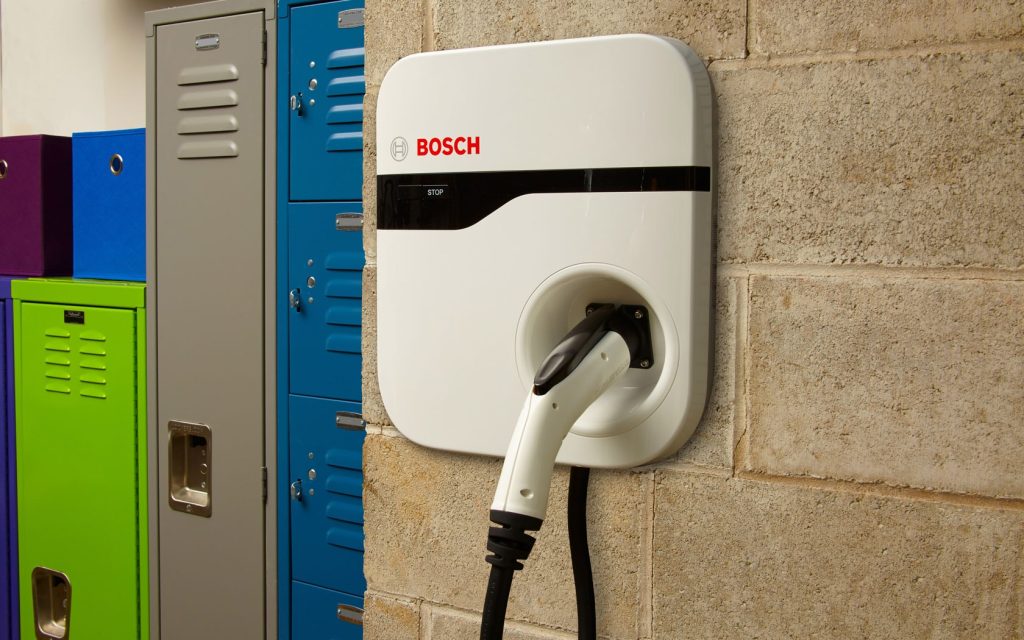
Understanding the technology behind Bosch Level 3 Chargers
Bosch Level 3 chargers utilize advanced power electronics and communication protocols to deliver high-power DC charging to electric vehicles.
These chargers often operate at voltages of 480 volts or higher, enabling charging rates ranging from 50 kW to 350 kW or more, depending on the model.
Smart charging capabilities may be integrated into Bosch Level 3 chargers, allowing for optimized charging schedules, load management, and energy efficiency.
Benefits of using Bosch Level 3 Chargers for Electric Vehicles
- Rapid Charging: Bosch Level 3 chargers offer rapid charging speeds, allowing drivers to replenish their EV batteries quickly, making electric vehicles more convenient for everyday use.
- Convenience for Long-Distance Travel: With fast charging capabilities, Bosch Level 3 chargers are essential for long-distance travel, providing drivers with quick charging stops along highways and major travel routes.
- Reliability and Performance: Bosch is known for its high-quality engineering and reliable products, ensuring that its Level 3 chargers deliver consistent performance and durability over time.
- Future-Proofing Infrastructure: Investing in Bosch Level 3 charging infrastructure helps future-proof charging networks to support the growing demand for electric mobility and advancements in EV technology.
Key features of Bosch Level 3 EV Chargers
- High-Power Output: Bosch Level 3 chargers deliver high-power DC charging, enabling fast and efficient charging sessions.
- Compatibility: Bosch chargers are designed to be compatible with various electric vehicle models and charging standards, ensuring interoperability and flexibility.
- Smart Charging Capabilities: Some Bosch Level 3 chargers incorporate smart charging features, allowing for optimized charging schedules and energy management.
- Durability and Reliability: Bosch chargers are built to withstand daily use and offer reliable performance over time, backed by Bosch’s reputation for quality engineering.
How does a Bosch Level 3 Charger compare to Level 2 Chargers?
While both Level 2 and Level 3 chargers facilitate the charging of electric vehicles (EVs), Bosch Level 3 chargers offer a significant advantage in terms of speed and power output.
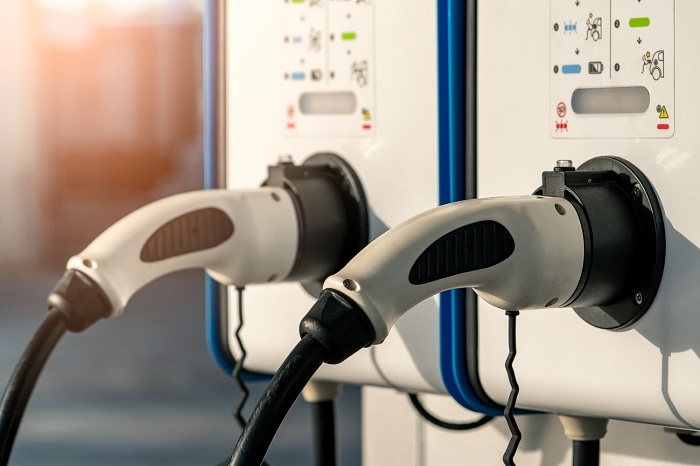
Distinguishing between Level 2 and Level 3 Charging Stations
The key differences between Level 2 and Level 3 charging stations lie in their power output, charging speed, and typical use cases.
| Feature | Level 2 Charger | Level 3 Charger ( Bosch EV3000) |
| Voltage | 240 volts (V) | 480 volts (V) |
| Current Type | AC (Alternating Current) | DC (Direct Current) |
| Power Output | 7kW – 22kW | 20kW–175kW+ |
| Charging Speed | Slower (several hours for a full charge) | Faster (potentially under an hour for a full charge) |
| Typical Use Case | Home charging, workplace charging | Public charging stations for long-distance travel |
| Installation | Easier, potentially DIY friendly | Requires qualified electricians due to the high voltage |
| Cost (charger itself) | Lower | Higher |
Here’s a table summarizing the key points:
| Feature | Level 2 Charger | Level 3 Charger |
| Charging Speed | Slow | Fast |
| Power Output | Lower | Higher |
| Typical Use | Home/Workplace | Public Stations |
| Installation | Easier | Requires Professionals |
| Cost | Lower | Higher |
Charging speed and power output of Bosch Level 3 Chargers vs. Level 2 Chargers
The primary difference lies in charging times. A Level 2 charger can take several hours to fully charge an EV battery, while a Level 3 charger can achieve an 80% charge in as little as 20 minutes. This makes Level 3 chargers ideal for long-distance travel or situations where time is of the essence.
In conclusion, Bosch Level 3 chargers offer a significant leap in charging speed compared to Level 2 chargers, making them a valuable option for EV owners seeking a faster and more convenient charging experience.
What are the advantages of using a Bosch Level 3 EV Charger?
The advantages of using a Bosch Level 3 EV Charger include:
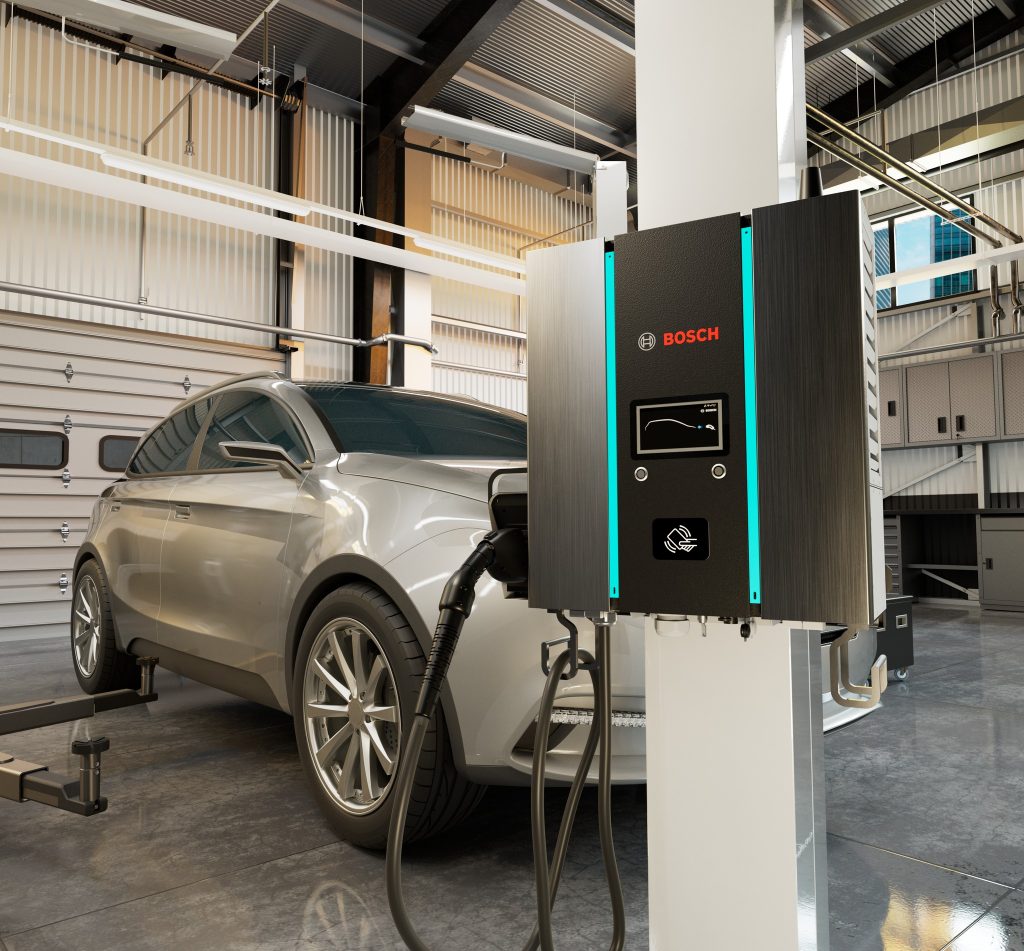
- Fast charging capabilities
Bosch Level 3 chargers offer rapid charging speeds, significantly reducing the time required to recharge electric vehicle batteries compared to Level 2 chargers. With charging rates ranging from 50 kW to 350 kW or more, depending on the model, Bosch Level 3 chargers can replenish a significant portion of an EV’s battery capacity in a short amount of time. This makes them ideal for quick pit stops during long journeys or in high-traffic areas where drivers need to recharge their vehicles quickly.
- Reduced charge time
The fast charging capabilities of Bosch Level 3 chargers translate to reduced charge times for electric vehicles, providing drivers with greater convenience and flexibility. Instead of waiting hours for a full charge, drivers can achieve a substantial charge in a matter of minutes, allowing them to get back on the road quickly and continue their travels with minimal downtime.
- Compatibility with different electric vehicle models
Bosch Level 3 chargers are designed to be compatible with various electric vehicle models and charging standards, ensuring interoperability and flexibility. Whether you drive a Tesla, Nissan Leaf, Chevrolet Bolt, or another electric vehicle model, you can likely utilize a Bosch Level 3 charger to quickly charge your vehicle’s battery. This compatibility enhances accessibility and convenience for electric vehicle drivers, regardless of the make or model of their vehicle.
How do I effectively charge an electric vehicle using a Bosch Level 3 Charger?
Bosch Level 3 Chargers offer a convenient and efficient way to charge your electric vehicle. To maximize your charging experience, follow these best practices.
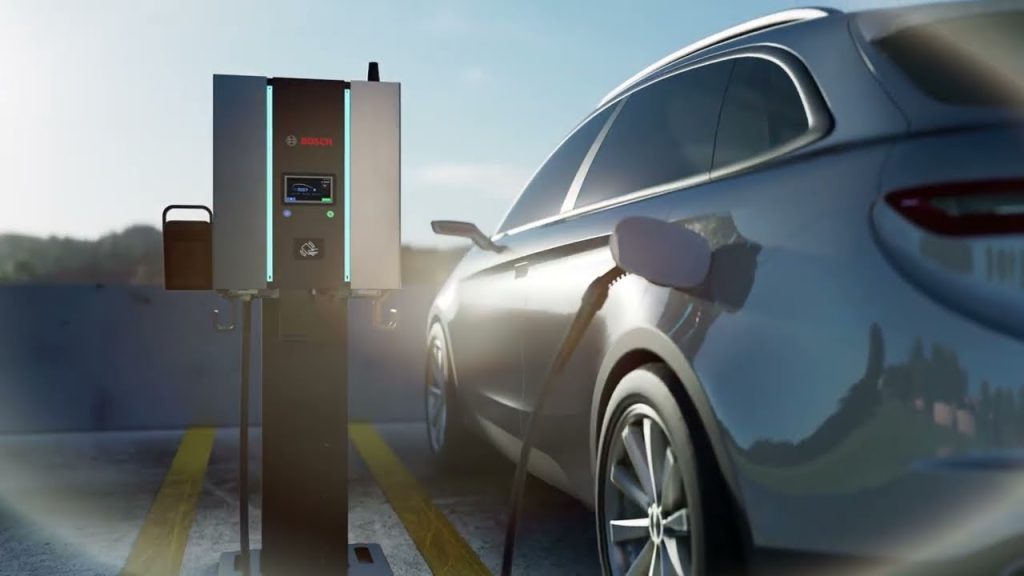
Best practices for optimizing charging with Bosch Level 3 Chargers
- Pre-condition your battery: Before charging, pre-condition your battery by turning on the climate control system for a few minutes. This helps the battery reach its optimal temperature for faster charging.
- Use the correct charging cable: Ensure you’re using the appropriate cable for your EV and the Bosch Level 3 Charger.
- Monitor charging progress: Keep an eye on the charging progress through the charger’s display or your EV’s app.
- Stop charging when full: Avoid overcharging your battery, as this can shorten its lifespan.
Tips for efficient and safe usage of Bosch Level 3 EV Chargers
- Park correctly: Park your vehicle in the designated charging area and ensure the charging cable reaches the port comfortably.
- Follow safety guidelines: Always follow the safety instructions provided with the Bosch Level 3 Charger.
- Report any issues: If you encounter any problems with the charger, report them immediately to Bosch customer support.
The Bosch Level 3 EV charger is a powerful and efficient solution for quickly charging electric vehicles. Its high power output, user-friendly interface, and network connectivity make it an ideal choice for long-distance travel and situations where rapid charging is required.
However, it is important to consider the cost, availability, and compatibility factors before making a purchase.

Henry Michael is a leading expert in EV charging station research, specializing in innovative solutions for electric vehicle infrastructure. With a passion for sustainability and technological advancement, he is dedicated to advancing the accessibility and efficiency of EV charging worldwide.
